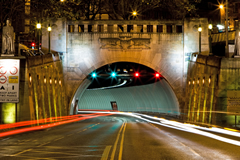The Sunday Times decided to devote half a dozen pages and an editorial lead last weekend to expose how business ‘unfriendly’ Ed Miliband and the Labour Party is. And, despite the mindless repetition among the thousands of words written to prove its point, there is no doubt that the narrative being used by the official opposition does not lend itself to one drawing the conclusion that the private sector has the full confidence and support of Labour’s leadership.
Indeed, though Shadow Business Minister Chuka Umunna has been at pains to point out that it is tax dodgers, unscrupulous bankers and poor employers that Labour has a problem with, the consistent and constant attack on ‘the private sector’ has led many to conclude that Ed actually is ‘red’ and he would lead a government determined to strangle enterprise and wealth creation.
But, just as there appeared to be an open goal for David Cameron to knock the ball into, and prove the Tory Party’s business – friendly credentials, the Prime Minister decided to shoot himself in the foot by telling bosses it was time they gave their employees a pay rise!
The problem with the rhetoric from both Labour and Conservative’s at the moment is the generality with which they speak – and the obsession with the negative.
For all the talk of ‘economic recovery’ it is a fact that many small businesses are still facing challenging times, and that far from being in a position to increase pay, they worry about being able to keep the staff they have.
The fragile recovery has not allowed business to increase their prices to customers, so where is the additional cash for wage hikes to come from?
The failure to distinguish between ‘big’ business and the vast majority of UK companies who are ‘SME’s’ is starting to grate with many business owners and entrepreneurs.
Have our political leaders thanked all those businessmen and women for fighting through tough times, keeping on staff and surviving by taking a pay cut themselves? Has the Prime Minister called on the treasury to give small bosses a break and be less aggressive when it comes to collecting VAT or corporation tax (no sweetener deals for the small or medium sized company I’m afraid), or indeed have Ministers been exploring how UK Plc can take the pressure off a business owner by actually meeting a promise they all make pre -election – and genuinely cut red tape and bureaucracy?
There is no doubt that unscrupulous employers, illegal tax dodgers and financiers on the fiddle should be held to account and punished. However, they are a very small minority of what makes up the business community of the UK, and it is time for politicians from all sides to start to acknowledge the hard work, honesty and contribution that the vast majority of business owners make to the well -being of the country.
The Footy
And so it came to pass that another bonanza football deal has been brokered, with a sum in the region of £5Billion being paid by a diverse range of media outlets for the TV rights to Premier League football. As I wrote last week here we will be witnessing a fixture programme that will stretch throughout the week, and I do believe this is the beginning of the end for the game.
Dopes like me who have an addiction to a football club, rather than the game itself, will probably continue to moan and groan, but like a chain smoker that has been threatening to pack in the fags for years, will find it almost impossible to ‘give up’ something that is no longer interested in the supporter. However, kids, the next generation of fans, will see football as a TV series, and they are likely start to choose to support teams randomly, depending on results. They certainly won’t be stupid enough to brave a cold, dark Wednesday night to watch Stoke battle out a mid- table fixture against West Ham!
If grass roots football was to benefit, or indeed prices for tickets were to be slashed, there may be something to celebrate. But the additional cash will simply go into the pockets of overpaid footballers, their agents and football ‘administrators’.
To those at the top of the game at the moment of course, this is an irrelevance. ‘Make hay while the sun shines’ should be the FA’s new motto, and one they could inherit from the banking community who had such an attitude during the financial boom – and look what happened to them!







